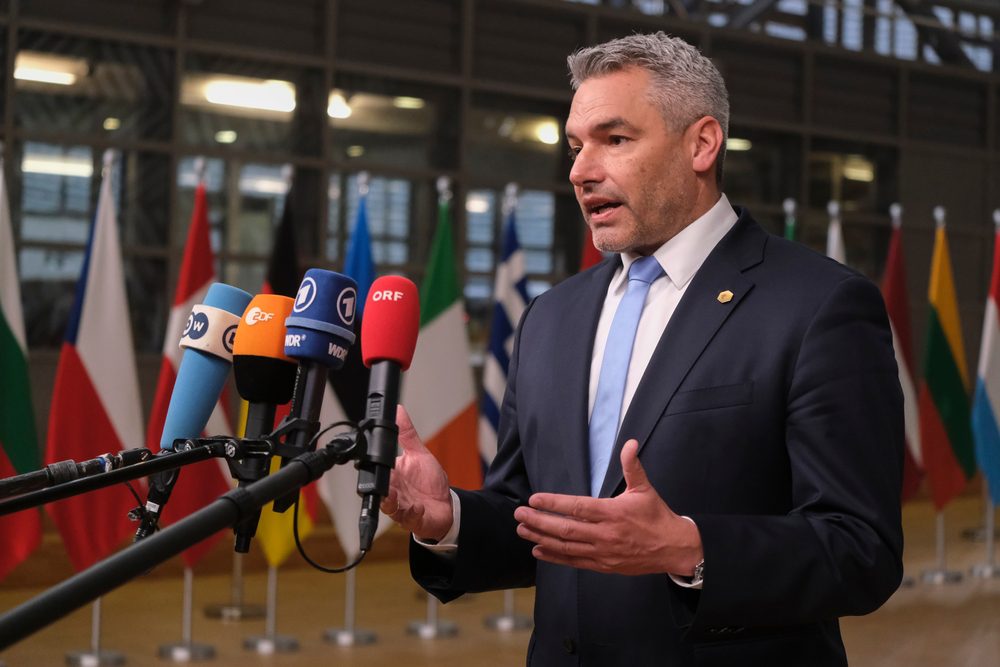
While the accession of Finland and Sweden to NATO is now almost a foregone conclusion, there is still no consensus in the position of European member states with regard to the accession of Ukraine and Moldova to the European Union. Instead, alternative offers are on the table.
On Sunday, June 5th, Austrian Chancellor Karl Nehammer called for granting an intermediate status to these two countries: a halfway resolution between cooperation agreements on the one hand, and full membership to the European Union on the other.
Chancellor Nehammer believes that at a time when fighting is intensifying, with an increasingly uncertain outcome, the question of Ukraine’s membership should not take precedence over other concerns:
Currently, Ukraine is fighting for its political and territorial survival. All our efforts are primarily aimed at ending the Russian war of aggression. In such a phase, a quick full accession to the Union cannot be a pressing issue.
Voicing his opinion in a discussion often accompanied by passion and outbursts, Nehammer called for wisdom and moderation. He believes that “emotion” should not be used as a guide for making such serious decisions. In his view, Ukraine’s rapid accession to member state status “is not realistic.”
He could all the more afford to insist on a timeframe because his own country, Austria, had gone through a long process of joining the European Union after the signing of the state treaty and subsequent declaration of neutrality in 1955. Austria only acquired member state status after a 40-year process—completed in 1995.
Nehammer said he was in line with French President Emmanuel Macron, who is advocating for the creation of a community that would bring together states wishing to strengthen their ties with the European Union, without being members themselves.
The Ukrainian authorities disapprove of this prospect. Foreign Minister Dmytro Kuleba says he is tired of “special solutions” that are temporary and incomplete, and affirms his desire for Ukraine to become a full member of Europe. The creation of a parallel community is an unsatisfactory solution for Ukraine, and refuses to allow Ukraine to be treated as a “second-class” state.
He denounced a “strategic ambiguity” on the part of certain European countries, which has weighed on Ukraine’s shoulders for too long and which, in his view, has fuelled Russia’s ambitions against his country.
